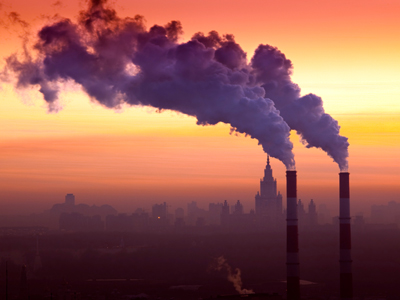
Ask the AI Tutor
Need help with Chemistry - Fuels and Pollution (AQA)? Ask our AI Tutor!
AI Tutor - Lucy
Connecting with Tutor...
Please wait while we establish connection

Fossil fuels release carbon dioxide, that has been locked away for millions of years, into the atmosphere.
Chemistry - Fuels and Pollution (AQA)
In GCSE Chemistry you explore fuels, how they burn, and the pollution they create. Learn how catalytic converters and cleaner fuels help cut harmful gases from engines.
1 .
One of the pollutants from burning fossil fuels is carbon dioxide. To which of the following environmental issues does it contribute?
The hole in the ozone layer
Acid rain
Global dimming
Global warming
Levels of CO2 have risen sharply since the second world war
2 .
What are biofuels?
Fuels made from animals
Fuels made only from plants
Fuels made from any living thing or its waste
Fuels made only from animal dung
Biofuels can be made from plants or plant and animal waste as it rots down producing methane gas
3 .
Why is carbon dioxide from fossil fuels a particular issue?
It is slightly radioactive
It is more polluting than the carbon dioxide breathed out by animals
Plants can't absorb it
It was locked away millions of years ago and so is adding to that which is present in the air today
This upsets the balance as the number of plants living on the Earth cannot remove it as fast as it is being added. Too much CO2 in the air could lead to a 'runaway' greenhouse effect which would kill off most of the life on Earth
4 .
Why is burning biofuels less of a problem than burning fossil fuels?
They don't produce any CO2 when they burn
They are renewable and don't release carbon locked away millions of years ago
They are cheaper and easier to produce when compared to fossil fuels
All of the above
Although burning biofuels does release carbon dioxide, burning them is 'carbon neutral' because the amount of carbon dioxide released when they are used is the same as the amount absorbed by the plants as they grew. But they are not quite carbon neutral overall as fossil fuels need to be burned in order to grow and make them
5 .
Which one of the following could be an ethical argument against growing plants for biofuels?
Farmers would earn more money
You need a lot more people to produce biofuels than fossil fuels
It could make fuel prices lower
It could increase food prices or cause food shortages
Land that could be used to grow food crops might be used to provide the raw materials for biofuels instead
6 .
Which impurity in fuels causes acid rain when it burns?
Carbon
Hydrogen
Soot
Sulfur
This burns to form sulfur dioxide. Low sulfur fuel is available at many petrol stations, especially in big cities where there are lots of cars
7 .
Which of the following is a balanced equation that shows how sulfur dioxide is formed?
S + O → SO
S + 2O → S2O
S + O2 → SO2
2S + O2 → 2SO2
This type of question tests if you can get a formula from the name of a chemical and recognise a balanced equation
8 .
Apart from sulfur, what else from burning fuels is a major contributor to acid rain?
Carbon monoxide
Di-hydrogen oxide
Unburnt fuel
Nitogen oxides
At the high temperatures inside vehicle engines, even the normally unreactive nitrogen is converted to nitrogen oxides. These are highly acidic
9 .
Which of the following might be directly caused by burning fuels?
Respiratory system problems
Bladder problems
Broken bones
Indigestion
Many of the gases produced by burning fuels are irritants to the lungs
10 .
Which of the following products of burning fuels could be responsible for global dimming?
Tiny solid particles
Water vapour
Carbon dioxide
Nitrogen oxides
These particles reflect some of the Sun's heat back into space, reducing the apparent effects of global warming. You might see this as a good thing but what happens when laws to reduce the amount of this type of pollution take effect?
You can find more about this topic by visiting BBC Bitesize - Crude oil, hydrocarbons and alkanes - AQA
**Unlimited Quizzes Await You! 🚀**
Hey there, quiz champ! 🌟 You've already tackled today's free questions.
Ready for more?
Ready for more?
🔓 Unlock UNLIMITED Quizzes and challenge yourself every day. But that's
not all...
not all...
🔥 As a Subscriber you can join our thrilling "Daily Streak" against other
quizzers. Try to win a coveted spot on our Hall of Fame Page.
quizzers. Try to win a coveted spot on our Hall of Fame Page.
Don't miss out! Join us now and keep the fun rolling. 🎉
**Unlimited Quizzes Await You! 🚀**
Hey there, quiz champ! 🌟 You've already tackled today's free questions. Ready for more?
🔓 Unlock UNLIMITED Quizzes and challenge yourself every day. But that's not all...
🔥 As a Subscriber you can join our thrilling "Daily Streak" against other quizzers. Try to win a coveted spot on our Hall of Fame Page.
Don't miss out! Join us now and keep the fun rolling. 🎉






